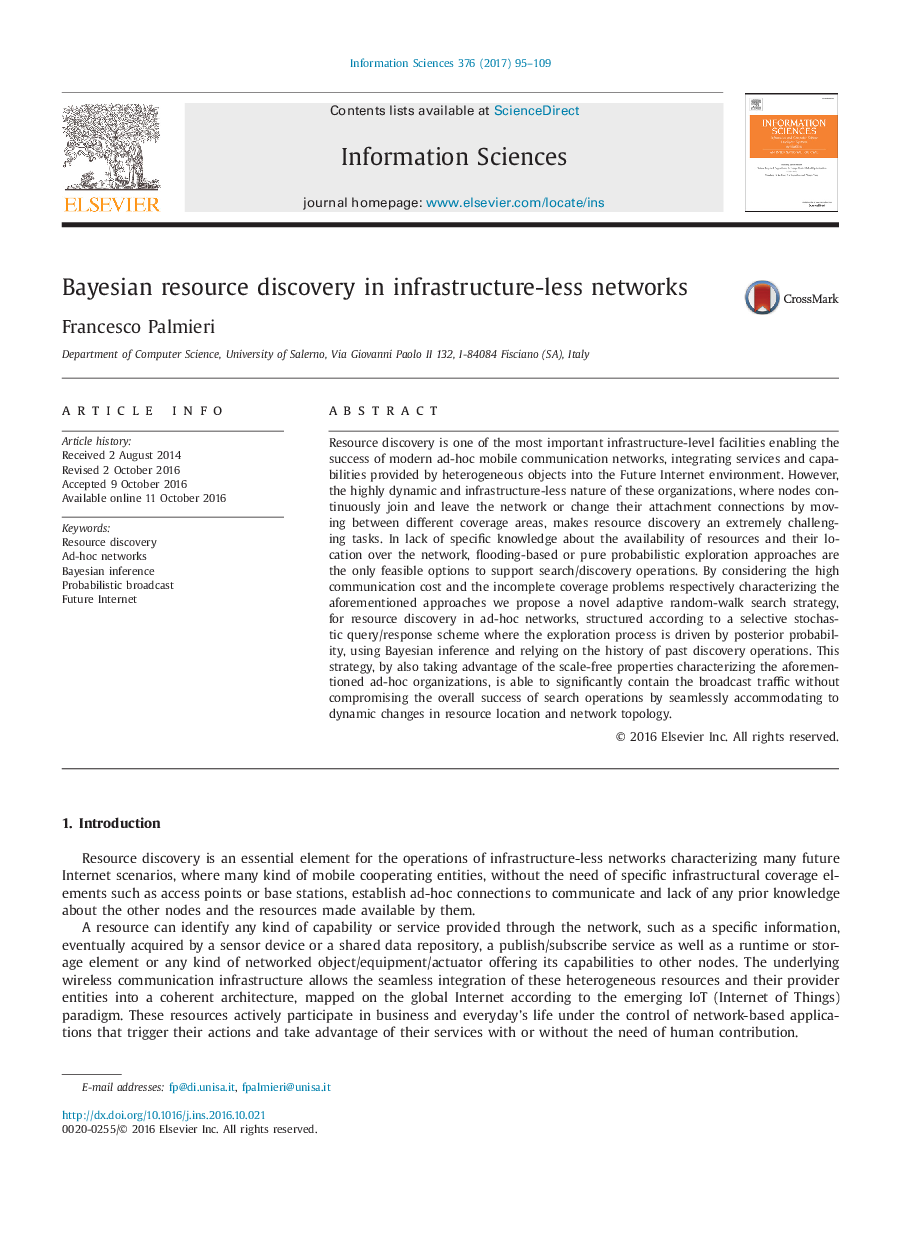ترجمه فارسی عنوان مقاله
کشف منابع بیزی در شبکه های کمتر از زیرساخت
عنوان انگلیسی
Bayesian resource discovery in infrastructure-less networks
| کد مقاله | سال انتشار | تعداد صفحات مقاله انگلیسی |
|---|---|---|
| 113824 | 2017 | 15 صفحه PDF |
منبع

Publisher : Elsevier - Science Direct (الزویر - ساینس دایرکت)
Journal : Information Sciences, Volume 376, 10 January 2017, Pages 95-109
ترجمه کلمات کلیدی
کشف منابع، شبکه های اختصاصی استنتاج بیزی، پخش احتمالی، اینترنت آینده
کلمات کلیدی انگلیسی
Resource discovery; Ad-hoc networks; Bayesian inference; Probabilistic broadcast; Future Internet;

